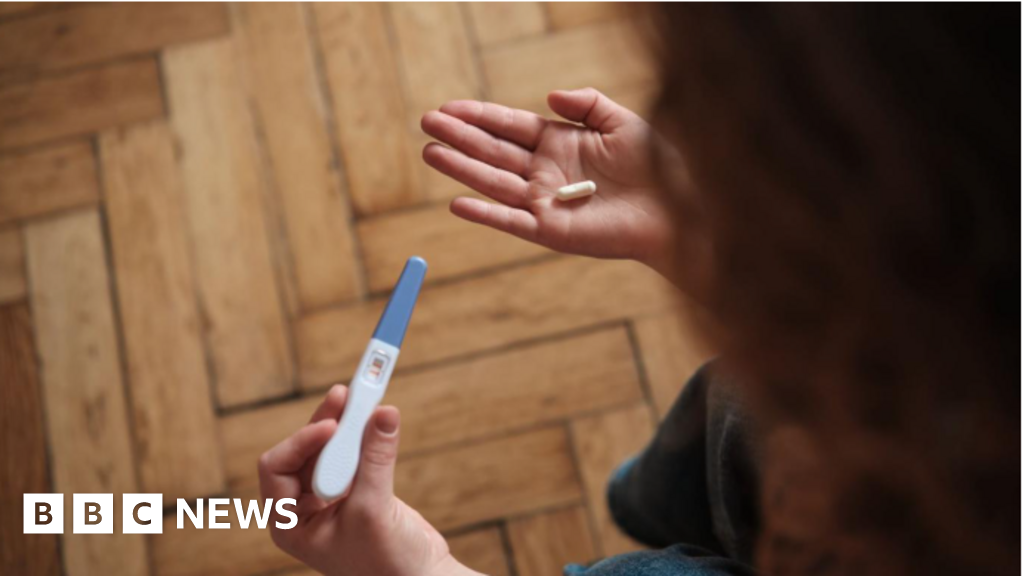MPs have voted to change abortion legislation to stop women in England and Wales being prosecuted for ending their pregnancy. The Labour MP for Gower, Tonia Antoniazzi, led the call to decriminalise the 1% of abortions that happen after 24 weeks, saying these were "desperate women" who need "compassion not criminalisation". As an issue of conscience, MPs were allowed to vote according to their personal beliefs, and backed the plan by a big majority of 242 votes. The current law in England and Wales states that abortion is illegal but allowed up to the first 24 weeks of pregnancy and beyond that in certain circumstances such as if the woman's life is in danger. Antoniazzi's amendment to the Crime and Policing Bill will remove the threat of investigation, arrest, prosecution, or imprisonment for late term abortion. Setting out her arguments, she flagged that nearly 99% of abortions happen before a pregnancy reaches 20 weeks, leaving just 1% of women "in desperate circumstances". Antoniazzi highlighted a series of cases where women had been arrested for illegal abortion offences and urged MPs to support her amendment to recognise "these women need care and support, and not criminalisation". "Each one of these cases is a travesty, enabled by our outdated abortion law," she said. "Originally passed by an all-male parliament elected by men alone, this Victorian law is increasingly used against vulnerable women and girls." Stella Creasy asked why MPs would want to retain outdated laws "in any shape or form, rather than learning from what is best practice around the world for all of our constituents". The Labour MP for Walthamstow put forward a second amendment urging MPs to go further, ditch any abortion-related clauses the 1861 Act, and enshrine abortion access as a human right. This was publicly backed by 108 MPs before the debate - but abortion providers, including the British Pregnancy Advisory Service, said the amendment was not the right way to achieve "generational change", and it did not go to a vote. Conservative shadow health minister Dr Caroline Johnson put forward a third amendment, aimed at stopping pills by post abortions by requiring a pregnant woman to have an in-person consultation before being prescribed medication to terminate her pregnancy. The Johnson amendment fell, with 379 MPs voting against and 117 voting for. Earlier, the Antoniazzi amendment had won support from 379 MPs, with 137 against. The new Antoniazzi clause would not change any law regarding the provision of abortion services within a healthcare setting, including but not limited to the time limit, telemedicine, the grounds for abortion, or the requirement for two doctors' approval. It was backed by all the main abortion providers, as well as 180 MPs from across the Commons and 50 organisations including the Royal College of Obstetricians and Gynaecologists (RCOG). However, the Society for the Protection of Unborn Children has called it an "extreme and dangerous proposal" that would "effectively decriminalise abortions". Only three women were convicted of having an illegal abortion between 1861 and November 2022, when the law was changed to allow women to take abortion pills at home up to 10 weeks of pregnancy. Records collected by the UK's largest abortion services have found at least 100 women have been investigated for having an abortion in the last five years, and six have appeared in court. Sign up for our Politics Essential newsletterto read top political analysis, gain insight from across the UK and stay up to speed with the big moments. It'll be delivered straight to your inbox every weekday.
MPs vote to decriminalise abortion for women in England and Wales
TruthLens AI Suggested Headline:
"UK MPs Approve Amendment to Decriminalise Late-Term Abortions"
TruthLens AI Summary
In a significant legislative move, Members of Parliament (MPs) in England and Wales have voted to decriminalise abortion, particularly focusing on the small percentage of cases occurring after 24 weeks of pregnancy. The initiative, spearheaded by Labour MP Tonia Antoniazzi, aims to protect women from legal repercussions when seeking abortions under desperate circumstances. Antoniazzi emphasized that nearly 99% of abortions take place before the 20-week mark, highlighting that only 1% involve women in dire situations who require care and understanding rather than criminal charges. The current law permits abortions up to 24 weeks but imposes strict penalties for those sought later, often leaving women vulnerable to prosecution. The amendment, which was incorporated into the Crime and Policing Bill, received substantial support, passing with a majority of 242 votes, reflecting a shift in parliamentary attitudes towards the treatment of women facing such critical decisions.
The debate surrounding the amendment also included various perspectives from MPs, with some advocating for even more comprehensive changes to the existing law. Labour MP Stella Creasy proposed an additional amendment to remove all abortion-related clauses from the 1861 Act, pushing for the recognition of abortion access as a human right. Despite gaining public backing from 108 MPs, this amendment did not proceed to a vote. Conversely, Conservative shadow health minister Dr. Caroline Johnson suggested an amendment that would require in-person consultations prior to prescribing abortion pills, which ultimately did not pass, receiving significant opposition. The Antoniazzi amendment, while not altering existing regulations on abortion services, garnered support from major abortion providers and numerous organizations, indicating a collective desire for more progressive legislation. Critics, however, including the Society for the Protection of Unborn Children, have condemned the amendment as extreme and potentially dangerous. Historical data reveals that only three women were convicted for illegal abortions from 1861 to late 2022, although recent investigations have seen over 100 women scrutinized for abortion-related offenses in the last five years, underscoring the urgent need for legislative reform in this area.
TruthLens AI Analysis
You need to be a member to generate the AI analysis for this article.
Log In to Generate AnalysisNot a member yet? Register for free.
